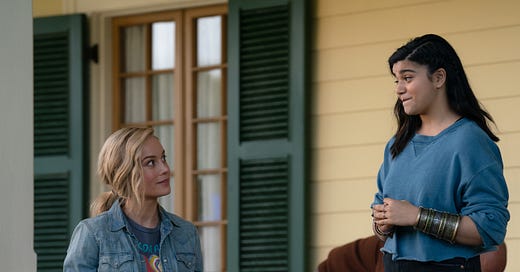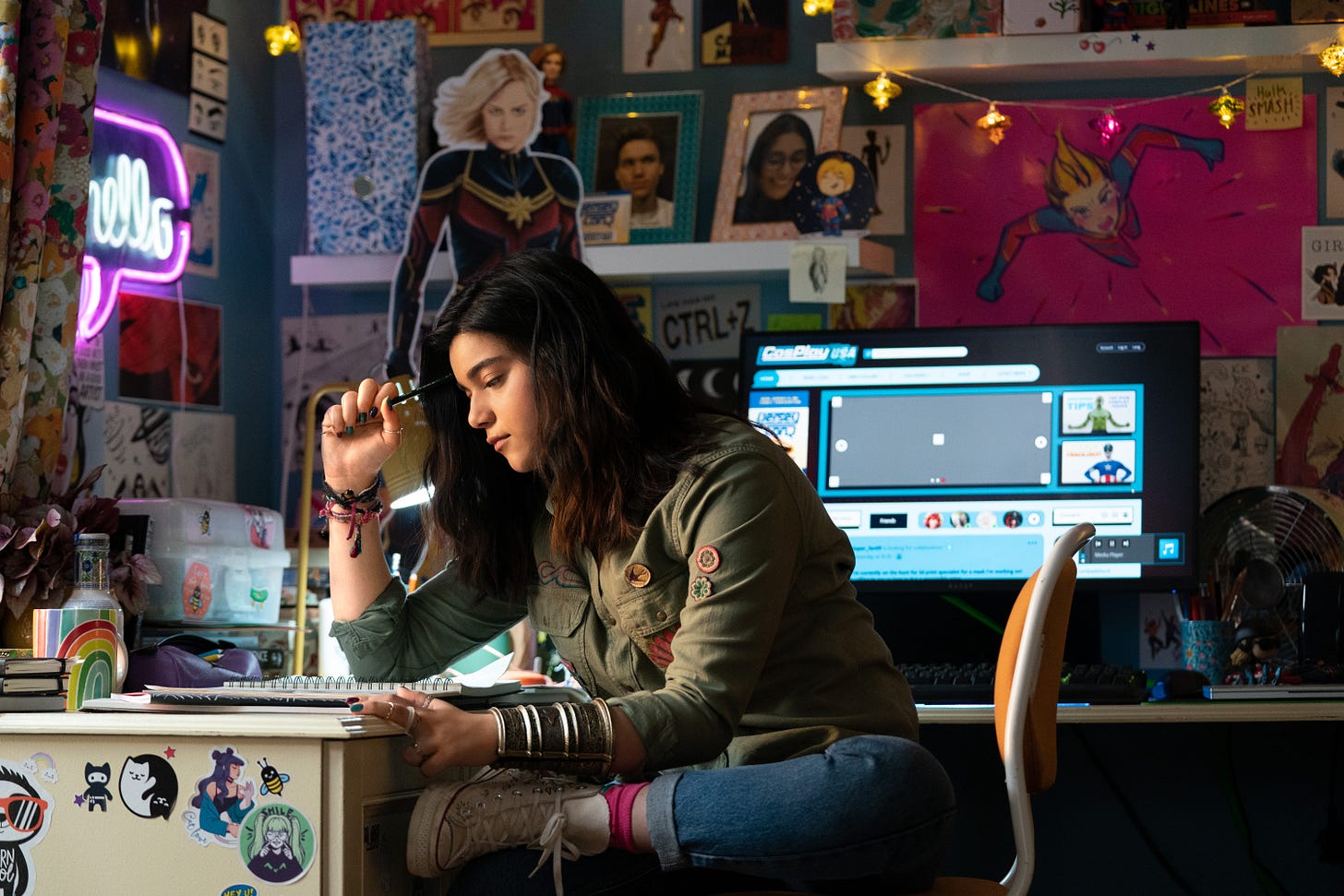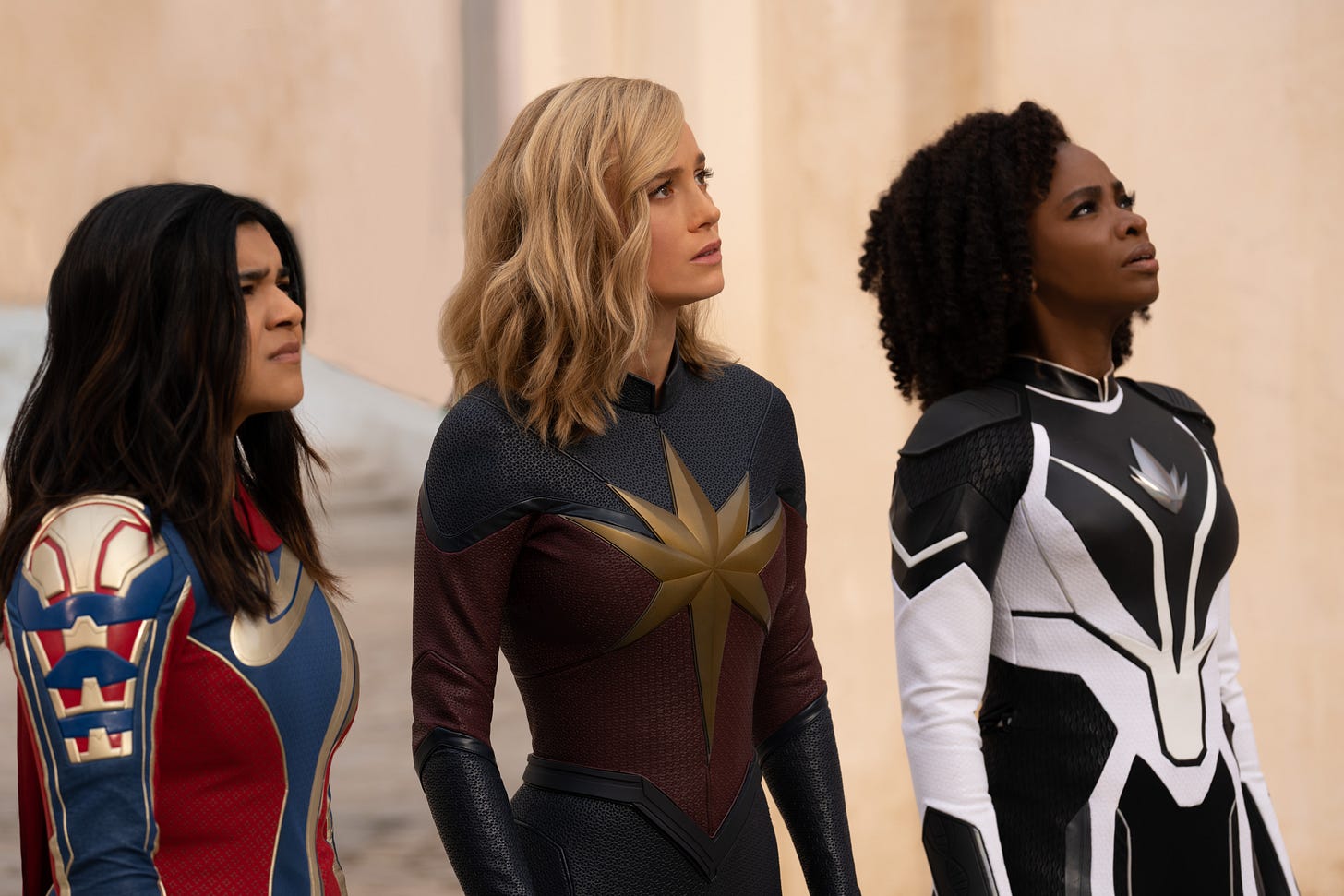In 'The Marvels', chemistry overcomes a shaky plot
The latest MCU film, which synthesizes the plots of prior movies and Disney+ shows, has appealing stars, but the storytelling leaves much to be desired
Heading into the release of The Marvels, the year’s third and final Marvel Cinematic Universe film, a certain story has been told about the movie and its place in the overall MCU: Nobody’s all that excited about it, it’s asking way too much for audiences to remember not only the details of a movie from four-and-a-half years ago but also a bunch of TV shows, and the MCU epoch seems like it’s about ready for a fall.
Among certain fanboys, a story is being told that’s even worse: That the movie is “woke,” that nobody wants what’s being offered (a film focused on a diverse female cast) and besides, “everybody” hates the movie’s star, Brie Larsen.
In reality, The Marvels isn’t the best MCU movie, but it’s far from the worst, either- it’s light-years better, in fact than the franchise nadir that was Ant-man and the Wasp Quantumania, which arrived nine months ago.
It’s got quite a few things going for it, including the strong chemistry of the leads and a couple of very creative sequences. But the plotting is relatively weak, and the stakes are muddled.
The Marvels, directed by Nia DaCosta, picks up where several previous MCU projects left off, starting with 2019’s Captain Marvel — which, due to the intervening pandemic, feels much longer ago than that — and the Disney+ series WandaVision, Ms. Marvel, and Secret Invasion. If that seems daunting, well, it is. (For the record, I’ve seen Captain Marvel and WandaVision but not the other two shows.)
Kamala Khan (Iman Vellani), also known as Ms. Marvel, is a teenage up-and-coming superhero and a huge fangirl of the established Captain Marvel (Larsen). The third member of the trio is Monica Rambeau (Teyonah Parris), the daughter of Captain Marvel’s deceased best friend from the first Captain Marvel film.
Even beyond a conceit that has the three characters switching places multiple times, the three have fine chemistry with one another. Which is good, but there’s not a lot else about the plot of the film that works.
The villain is the Kree warrior Dar-Benn (Zawe Ashton), and both her mission and motivation, and those of the heroes, were lost on me for most of the running time. We’re once again back in the neverending battle between the Kree and the Skrulls, and if you thought there were Israel/Palestine parallels with that before, that was nothing.
There’s one truly great setpiece here, in which the three heroines visit a planet in which the characters all sing, all the time. It’s such a fantastic idea that I can’t believe the MCU never did it before, and this sequence is executed flawlessly (except for the part where the camera keeps cutting away when it’s Brie Larsen’s turn to sing.) And speaking of musicals, The Marvels includes the MCU’s first-ever direct homage to the work of Andrew Lloyd Webber.
The actresses are all good, with Iman Vellani in particular stealing the show. I’m still not exactly sure why I’m supposed to dislike Brie Larsen (something something “I don’t like her face/voice”), but she’s wonderful here once again, as is Parris, so effective in such different movies as Chi-raq and If Beale Street Could Talk.
Samuel L. Jackson’s Nick Fury is once again around, along with a couple of other familiar faces. Heavily featured, as well, are the cat aliens known as Flerkins, whose appeal, I must say, is completely lost on me.
As for the action sequences, it’s a lot of stuff we’re used to from the MCU, including a lot of exploding things in the sky, although the final action sequence is thankfully more understated. And while the film isn’t primarily about the multiverse, I won’t say it makes no appearance at all.
And while I’ll say nothing beyond is, please do stay for the credit sequences.






